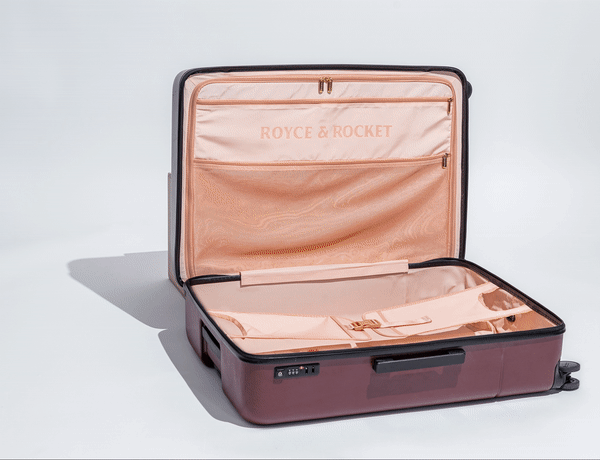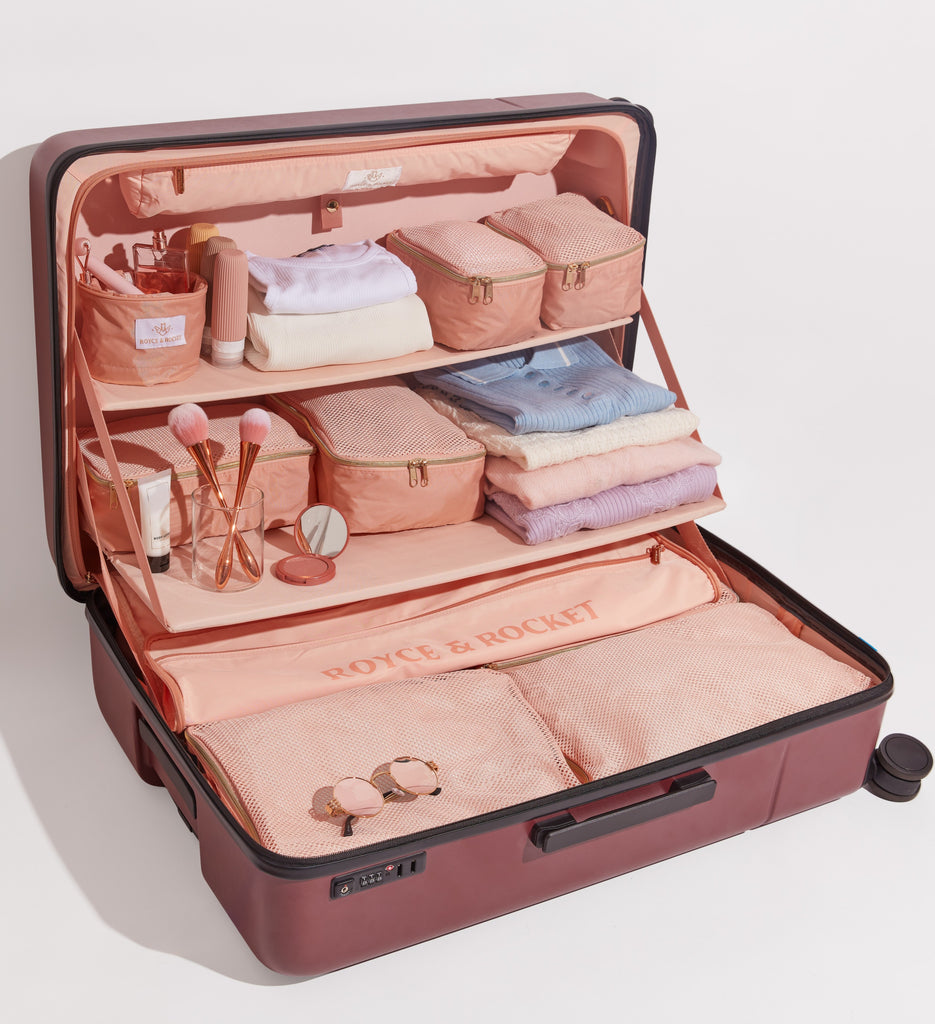Traveling internationally offers exciting opportunities to explore new cultures, cuisines, and landscapes. However, one common challenge that travelers face is navigating language barriers. Communication is key to fully experiencing a destination, and overcoming language obstacles can enhance your travel experience significantly. In this blog post, we will explore practical tips and strategies for navigating language barriers when traveling internationally. Plus, we'll discuss how packing in 30 inch luggage can help you be well-prepared for your adventures.
1. Preparation Before Your Trip
Learn Basic Phrases
Before you embark on your trip, take some time to learn basic phrases in the local language. Phrases like "hello," "thank you," "please," "excuse me," and "help" can go a long way in making your interactions smoother. There are numerous language learning apps like Duolingo, Babbel, and Memrise that can help you get started.
Use Translation Apps
Modern technology has made overcoming language barriers much easier. Download translation apps like Google Translate, which can translate text, voice, and even images in real-time. These apps can be a lifesaver in situations where you need quick and accurate translations.
Pack Language Resources in Your 30 Inch Luggage
Include a pocket-sized phrasebook or a translation guide in your 30 inch luggage. These resources can be handy when your smartphone's battery is low or when you find yourself in areas with limited internet access. Additionally, consider packing a small notepad and pen to write down important phrases or directions.
2. Communicating Effectively
Non-Verbal Communication
Non-verbal communication can be a powerful tool when words fail. Gestures, facial expressions, and body language can convey a lot of information. For instance, pointing to objects, using hand signals, and smiling can help bridge the communication gap.
Speak Slowly and Clearly
When communicating in a foreign language, speak slowly and clearly. Avoid using slang or idiomatic expressions that might be confusing. Simplify your sentences and use common words to make it easier for the other person to understand you.
Use Visual Aids
Visual aids can be incredibly helpful in overcoming language barriers. Carry a map, pictures, or flashcards with common images and symbols. These can be useful when asking for directions, ordering food, or explaining your needs.
Leverage Technology
In addition to translation apps, there are other technological tools that can assist you. Apps like TripLingo provide cultural tips, essential phrases, and even voice translation features. Having these tools readily accessible in your 30 inch luggage ensures you're prepared for various communication challenges.
3. Engaging with Locals
Show Respect and Patience
Respect and patience are crucial when interacting with locals. Demonstrating respect for their language and culture can foster positive interactions. Be patient if communication is slow or difficult; remember that both parties are trying their best to understand each other.
Learn from Locals
Engage with locals and ask them to teach you a few phrases or correct your pronunciation. Most people appreciate the effort and will be happy to help you learn. This not only improves your language skills but also creates memorable cultural exchanges.
Participate in Language Exchanges
Language exchange programs or meetups are a great way to practice the local language and make new friends. These programs pair you with a local who wants to learn your language, creating a mutually beneficial learning experience. Check online platforms or local community boards for opportunities.
4. Navigating Daily Activities
Using Public Transportation
Navigating public transportation in a foreign country can be challenging. Look for maps and schedules in your language or use translation apps to interpret them. Many major cities have transportation apps that provide information in multiple languages.
Ordering Food
Ordering food can be tricky, especially if the menu is in a language you don’t understand. Use translation apps to read menus or look for restaurants with picture menus. Pointing to dishes or ingredients that you recognize can also be an effective strategy.
Shopping and Markets
When shopping, especially in local markets, knowing a few key phrases can enhance your experience. Learn how to ask for prices, sizes, and bargaining phrases. Using a calculator or writing down numbers can help clarify transactions.
Finding Your Way
Navigating unfamiliar streets can be daunting. Always carry a map or use GPS apps to guide you. If you get lost, don’t hesitate to ask for help. Use landmarks or show the address of your destination to locals for assistance.
5. Dealing with Emergencies
Emergency Phrases
Familiarize yourself with emergency phrases and how to ask for help in the local language. Knowing how to say "I need help," "call the police," or "I need a doctor" can be crucial in emergency situations.
Carry Important Documents
Keep copies of important documents, such as your passport, visa, and insurance information, in your 30 inch luggage. Having these documents readily accessible can expedite assistance in emergencies.
Use Emergency Apps
Download emergency apps like ICE (In Case of Emergency) that store your medical information, emergency contacts, and other vital details. These apps can provide critical information to first responders if you are unable to communicate.
6. Immersing Yourself in the Language
Take a Language Class
If you’re staying in a destination for an extended period, consider taking a language class. Immersing yourself in the local language through structured lessons can significantly improve your communication skills and enhance your overall experience.
Watch Local Media
Watching local TV shows, movies, and news can help you get accustomed to the language. Listening to how words are pronounced and used in context can improve your understanding and fluency.
Practice, Practice, Practice
Practice speaking the local language as much as possible. Don’t be afraid to make mistakes; locals will appreciate your efforts and often help you improve. Consistent practice builds confidence and proficiency over time.
Navigating language barriers when traveling internationally can be challenging, but it is also an enriching part of the travel experience. With preparation, the right tools, and a positive attitude, you can effectively communicate and immerse yourself in the local culture. Remember to pack essentials, including language resources, in your 30 inch luggage to ensure you are well-prepared for any situation. Embrace the opportunity to learn and grow, and you’ll find that overcoming language barriers enhances your travel adventures and creates lasting memories. Happy travels!





